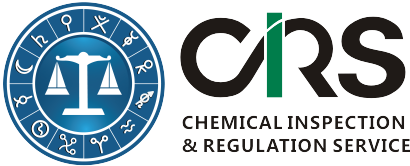
Labelling requirements on pre-packaged foods imported into China.
updated in Jan 2014
In China, pre-packaged food products are subject to many regulations and national standards in China. Compliant food labels are very important for customs inspection and clearance when it comes to imported food products.
GB 7718-2011, The general rules for the labeling of prepackaged food
China National Standard GB7718-2011, General rules for the labeling of prepackaged food, specifies the labeling requirements on layout and content of prepackaged foods in China. The final version was issued by the Ministry of Health (MOH) on 20 April 2011 and was implemented on 20 April 2012. The General Administration of Quality Supervision, Inspection and Quarantine (AQSIQ) is acting as the enforcement body for this national standard.
GB 28050-2011, The general rules for nutrition labeling of prepackaged foods
China National Standard GB28050-2011 contains general rules for nutrition labeling of prepackaged foods, and specifies the specific requirements on the indication of nutrition compositions and functional statements of nutrition compositions on the prepackaged food label. The final version was issued by the Ministry of Health (MOH) on 12 October 2011 and implemented on 1 January 2013. The General Administration of Quality Supervision, Inspection and Quarantine (AQSIQ) is acting as the enforcement body for this national standard.
AQSIQ Notice 27 Administrative regulation on the inspection and supervision of labeling of imported and exported prepackaged food
Administrative regulation on the inspection and supervision of labeling of imported and exported prepackaged food, also named as AQSIQ Notice 27, has been issued by AQSIQ on 27 February 2012 and was implemented on 1 June 2012. This regulation details the document requirements for inspection on the label of imported and exported prepackaged food.
Below materials will be required when the prepackaged food go through Chinese Customs for the first time.
- Chinese specific label
- Original label and translated version
- Nutrition test reports
- Business license of importer, distributor or your Chinese agent
- Other evidence material if there are any claims on the label
A record certificate will be issued for your prepackaged food once all your materials have been approved by AQSIQ.
For subsequent imports, the following materials will be required:
- A copy of record certificate, which has been issued during your first time.
- Original label
- Chinese specific label
How many overseas prepackaged foods have been rejected or destroyed by China Customs duo to non-compliant label?
In accordance with CIRS’s statistics, 3966 batches of overseas prepackaged foods have been rejected or destroyed by China Customs from March 2012 to October 2013 when these products were going through China Customs. 567 batches of them have been rejected or destroyed by China Customs due to non-compliant labels. Please see below table for more detailed information
Time |
Total amount of batches rejected or destroyed |
The amount of rejected or destroyed batches due to non-compliant labels |
Ratio |
Mar. 2012 |
309 |
32 |
10.4% |
Apr. 2012 |
201 |
23 |
11.4% |
May. 2012 |
151 |
36 |
23.8% |
Jun. 2012 |
124 |
11 |
8.9% |
Jul. 2012 |
275 |
24 |
8.7% |
Aug. 2012 |
190 |
12 |
6.3% |
Sep. 2012 |
169 |
14 |
8.3% |
Oct. 2012 |
96 |
10 |
10.4% |
Nov. 2012 |
343 |
104 |
30.3% |
Dec. 2012 |
242 |
38 |
15.7% |
Jan. 2013 |
240 |
45 |
18.75% |
Feb. 2013 |
166 |
27 |
16.3% |
Mar. 2013 |
156 |
4 |
2.6% |
Apr. 2013 |
187 |
6 |
3.2% |
May. 2013 |
137 |
19 |
13.9% |
Jun. 2013 |
86 |
14 |
16.3% |
Jul. 2013 |
242 |
18 |
7.4% |
Aug. 2013 |
311 |
71 |
22.8% |
Sep. 2013 |
147 |
28 |
19.0% |
Oct. 2013 |
194 |
31 |
16.0% |
Total |
3966 |
567 |
14.3% |
Fortunately, the importers are allowed to modify their label under the supervision of AQSIQ. These prepackaged foods can still be imported into China after compliant labels have been provided. However, this delay will affect sales periods of prepackaged foods on the market and increase the cost due to extra high port storage fee.
According to CIRS’s experience, the following items will lead to non-compliance:
- Format error - even an incorrect punctuation may lead to the modification of the label;
- Incorrect food additives’ name – there is a mandatory requirement on the layout name of food additives;
- Lack of contact information of a local representative – the contact information of a local responsible organization is required by GB 7718-2011.
- The results of nutrition test are not consistent with that indicated on the label - The nutrition test report as well as verification proof of the Chinese specific label is required by China Customs.
Nutrition test
For general prepackaged food, 4 plus 1 items will be required, namely protein, fat, carbohydrate, sodium and energy. If there are any other nutrition elements that have been indicated on the label, relevant test reports of these nutrition elements need to be provided.
Overseas companies are encouraged to conduct these tests in Chinese official laboratories because test methods in China may be different from the country of origin. The random inspection on prepackaged foods is always based on Chinese test methods. The consistency of the test result between random inspection and your own test report is quite important. Otherwise, the China Customs officer will question the quality of your products.
Service
- Label review of Chinese pre-packaged food;
- Prepare Chinese label for original prepackaged food;
- Prepare Chinese specific label based on GB7718-2011 and GB 28050-2011;
- 4 Plus 1 Nutrition test in China: test on protein, fat, carbohydrate, sodium and energy.
- Other nutrition elements test.
Contact
- Mr David Wan, Team Leader, Food & Health Products, CIRS China
11F Dongguan Building, 288 Qiuyi Road, Binjiang District, Hangzhou, China, 310052
Tel: +86-571 8720 6555 | Fax: +86-571 8720 6533
Email: david@cirs-reach.com

